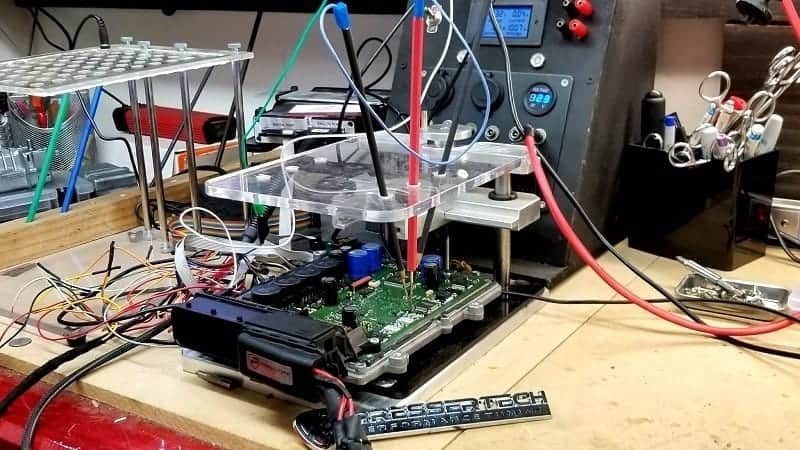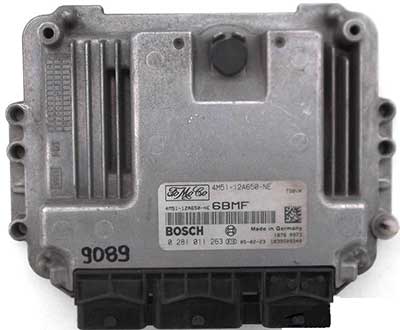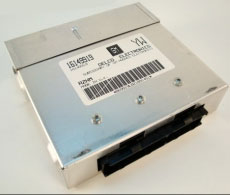The Engine Control Unit (ECU), often referred to as the “brain” of your car, plays a crucial role in ensuring optimal performance and efficiency. It’s responsible for managing various aspects of your vehicle’s engine, transmission, and other critical systems. Just like any other part of your vehicle, the ECU requires proper care and maintenance to ensure its longevity and reliable performance. In this blog, we’ll delve into some essential tips for ECU maintenance that can help keep your car running smoothly.

1. Regular Software Updates:
Modern vehicles are equipped with sophisticated ECUs that run on complex software programs. Just like your smartphone or computer, these software programs can be updated to improve performance and address any potential bugs. Manufacturers release updates periodically to enhance fuel-efficiency, fix known issues, and even enhance performance. It’s crucial to stay informed about these updates and ensure that your vehicle’s ECU software is up to date.
2. Avoid Sudden Voltage Spikes:
Voltage spikes and electrical surges can damage sensitive electronics, including your car’s ECU. These spikes can occur due to various reasons, such as jump-starting the vehicle incorrectly, using poor-quality jump cables, or faulty alternators. To prevent voltage spikes, always use proper jump-starting procedures, and if you suspect electrical issues, have them addressed promptly by a professional.
3. Maintain a Healthy Battery:
A healthy battery is essential for the proper functioning of your vehicle’s ECU. Low battery voltage can cause the ECU to malfunction or even fail. Regularly check your battery’s condition and replace it as needed. Clean the battery terminals to prevent corrosion, which can interfere with electrical connections.
4. Keep the Engine Cool:
Excessive heat can be detrimental to the ECU and other electronic components. Ensure that your vehicle’s cooling system is in good working condition. Regularly check coolant levels, radiator, and cooling fans to prevent overheating. Parking your car in shaded areas and avoiding extreme driving conditions in high temperatures can also help protect the ECU from excessive heat exposure.
5. Protect from Moisture and Water:
Water and moisture can wreak havoc on electronic components, and your car’s ECU is no exception. To prevent damage from water exposure, avoid driving through deep puddles or flooded areas. Regularly inspect the ECU’s housing for any signs of water entry, and address any leaks or damage promptly.
6. Avoid DIY ECU Modifications:
While aftermarket modifications might seem tempting, making unauthorized changes to your car’s ECU can lead to serious issues. Modifying the ECU’s programming without proper knowledge can affect the vehicle’s performance, emissions, and overall reliability. If you’re considering modifications, consult with professionals who specialize in ECU tuning and customization.
7. Regular Maintenance Checks:
Include ECU checks as part of your regular vehicle maintenance routine. During scheduled services, mechanics can diagnose potential ECU issues through onboard diagnostic systems (OBD) and address them before they escalate. Regular maintenance also allows professionals to identify any error codes or anomalies in the ECU’s operation.
8. Use Quality Fuel and Fluids:
The quality of fuel and fluids you use in your vehicle can impact its overall performance, including the ECU’s operation. Using high-quality fuel and recommended fluids can prevent carbon buildup, injector clogs, and other issues that may indirectly affect the ECU’s performance.
9. Address Warning Lights Promptly:
Modern vehicles are equipped with warning lights that indicate potential problems, many of which are related to the ECU. Ignoring warning lights can lead to more significant issues down the line. Whenever you see warning lights on your dashboard, consult your vehicle’s manual or visit a professional mechanic to diagnose and resolve the issue.
Read more: Ford Fiesta Mk6 Alternator Problems And How To Resolve Them
10. Professional Assistance:
If you suspect any issues with your car’s ECU or experience performance problems, don’t hesitate to seek professional help. Trained technicians at ECU-Repairs have the expertise and specialized tools to diagnose and repair ECU-related problems accurately.
FAQs
Q1: Can I tune or modify my ECU for better performance?
A: While ECU tuning or modification is possible, it’s essential to approach it with caution. Modifying the ECU’s programming can impact various aspects of your vehicle, including emissions, reliability, and warranty coverage. If you’re considering ECU modifications, it’s advisable to consult with professionals who specialize in this area to ensure that the changes are made safely and effectively.
Q2: How can I prevent voltage spikes from damaging my ECU?
A: To prevent voltage spikes and electrical surges from damaging your ECU, follow these steps:
- Use proper jump-starting procedures with high-quality jump cables.
- Ensure that your vehicle’s alternator is functioning correctly to prevent overcharging the battery.
- If you suspect electrical issues, have them diagnosed and repaired by a professional.
Q3: Can extreme heat damage the ECU?
A: Yes, excessive heat can potentially damage the ECU and other electronic components. To prevent heat-related damage, make sure your vehicle’s cooling system is in good condition. Regularly check coolant levels, inspect the radiator, and ensure the cooling fans are working properly. Parking your car in shaded areas and avoiding driving in extreme heat conditions can also help protect the ECU from overheating.
Q4: Are there warning signs of ECU problems?
A: Yes, several warning signs might indicate ECU problems:
- Check the Engine Light (CEL) or other warning lights on the dashboard.
- Poor engine performance, including reduced power or acceleration.
- Difficulty starting the engine or rough idling.
- Unusual fuel efficiency changes.
- Transmission issues, such as erratic shifting.
- Unexplained electrical problems.
Q5: Can I replace or repair the ECU myself?
A: Replacing or repairing the ECU can be complex and requires specialized knowledge and tools. It’s recommended to leave such tasks to trained professionals who have experience working with automotive electronics. Incorrect ECU replacement or repairs can lead to further problems and even damage your vehicle’s systems.
Q6: How can I protect my car’s ECU from water damage?
A: To protect your car’s ECU from water damage:
- Avoid driving through deep puddles or flooded areas.
- Regularly inspect the ECU’s housing for signs of water entry.
- Fix any leaks in your vehicle’s seals or weather stripping that could allow water to enter the engine compartment.
- If you suspect water has entered the ECU housing, have it inspected by a professional.
Read more: ECU Testing, Decoding, Repair + Exchange
In conclusion, proper ECU maintenance is essential for the overall health and performance of your vehicle. By following these tips, you can help ensure that your car’s brain remains in top shape, contributing to a smoother driving experience and a longer lifespan for your vehicle. Remember, a well-maintained ECU translates to a well-performing vehicle on the road.

